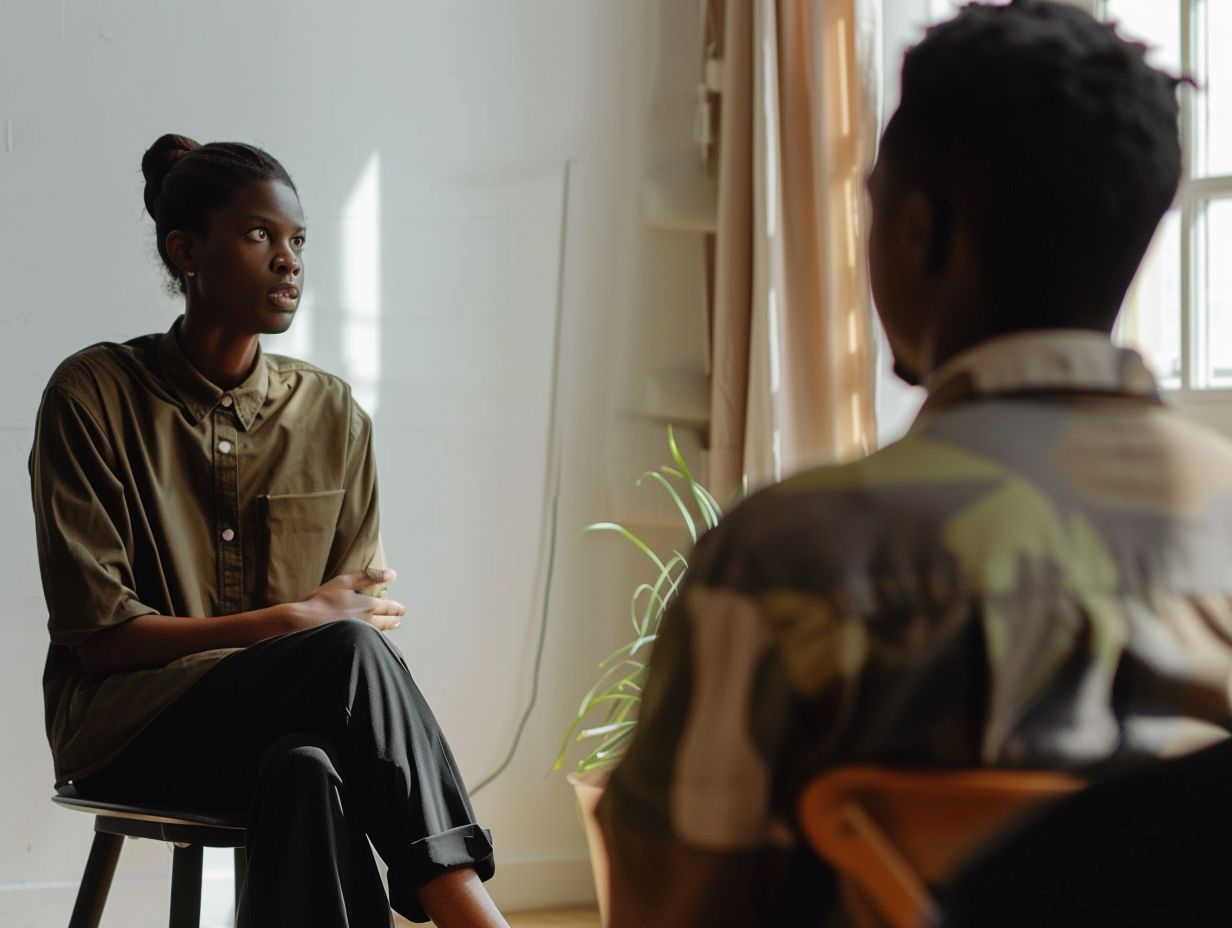Are you getting ready for an immigration interview and feeling a bit lost? This article has got your back with a detailed breakdown of the immigration interview process, from the different types of interviews to how you can get yourself ready and what you can expect when you’re in the hot seat.
Whether you’re scrambling to gather all your required documents or drilling yourself on interview questions, we’re here to walk you through everything you need to tackle that interview like a pro. Stick around to find out about the usual questions, the standard interview setups, and some tips for what to do post-interview.
Overview of the Immigration Interview Process

Going through the immigration interview is a crucial part of figuring out if you qualify for different immigration benefits like a green card, naturalization, or adjustment of status. The U.S. Citizenship and Immigration Services (USCIS) handles this process, and having a good grasp of what to expect can really sway how things turn out for your application.
What is an Immigration Interview?
During an immigration interview, you’ll sit down with a USCIS officer for a formal chat. Their job? To double-check all the info you’ve provided in your application and make sure you qualify for the immigration benefit you’re after.
When you’re in the hot seat, that USCIS officer is the gatekeeper of legitimacy, making sure all your documents are on point and follow immigration laws. They’re there to verify your application, iron out any kinks, and dig deeper into your background, intentions, and connections back home.
Get ready for a bit of a Q&A session. The officer might ask about your fam, work history, why you’re looking to move, and your plans in the new country. Be sure to have your passports, birth certificates, marriage certificates, financial records, and any other supporting docs handy. It’s all part of building your case.
Types of Immigration Interviews
There are several types of immigration interviews tailored to your specific immigration benefit. For instance, you might have a green card interview if you’re applying based on marriage, a naturalization interview if you’re going for citizenship, or an adjustment of status interview for permanent residency.
During your green card interview for a marriage-based application, they’ll really dive into your relationship with your spouse. Get ready to talk about your history together, where you live, and how you handle finances.
Now, if you’re going through a naturalization interview, they’ll test your knowledge of U.S. history, government, and English skills. They want to make sure you’re all set to become a U.S. citizen.
For adjustment of status interviews, which are common for those seeking permanent residency through family or work, they’ll check if you meet the requirements and follow immigration laws.
Preparing for the Interview
Getting ready for your immigration interview means you need to gather up all the necessary documents, get familiar with the types of questions you might be asked, and know what to expect during the interview.
Gathering Required Documents

When you’re gearing up for your immigration interview, make sure you have all the necessary documents on hand. You’ll need to show proof to support your application and confirm your eligibility when you meet with the USCIS officer.
Throughout the immigration interview, be ready to present a variety of documents that validate your identity, background, and eligibility for the immigration process. Don’t forget to bring along your valid passport, birth certificate, marriage certificate (if applicable), proof of financial support or employment, and any relevant public records that back up your application.
These documents are like your golden tickets for the USCIS officer to evaluate your eligibility and make informed decisions about your immigration status. Having all your paperwork ready and organized beforehand can help make the interview process smoother and showcase your readiness.
Practicing Interview Questions
When you practice interview questions, it can really boost your confidence and get you ready to ace that USCIS officer meeting. Knowing the types of questions they might throw at you and how to tackle them effectively will make you feel more at ease.
Make sure you don’t just practice the usual interview questions – understand why they’re asked. Questions like ‘Can you tell me about yourself?‘ are there to see how well you can communicate and summarize your experiences. So, focus on highlighting your top achievements and skills that match the job.
And hey, good body language is key – make eye contact, sit up straight, and show that confidence and professionalism. Don’t forget to really listen, stay calm, and give thoughtful responses to prove you’re the perfect fit for the role.
What to Expect During the Interview
Knowing what to expect during the immigration interview can help you feel more relaxed and make sure you’re ready for this crucial step in the immigration process. Typically, it involves sitting down for a formal chat with a USCIS officer who will go over your application and determine your eligibility.
Typical Interview Format
In a typical immigration interview, you can expect a structured series of events to unfold. It all kicks off with the officer verifying your identity and documentation, then they’ll hit you with a barrage of questions to size up your eligibility for that immigration benefit you’re after.
As you go through the interview, don’t be surprised if the officer wants some biometric data from you, like fingerprints or photos. This is a key step in making sure everything on your application checks out and that you are who you say you are in those documents. Be ready for the officer to dig into background checks too, looking into any criminal history or past immigration slip-ups. It’s all part of the process to scrutinize your case thoroughly.
Common Questions and How to Answer

During your immigration interview, the USCIS officer will ask you a bunch of questions, covering everything from your personal background to the documents you’ve submitted for your immigration application. It’s a good idea to get ready for the interview by getting familiar with some common questions that might come up. They could ask about why you want to immigrate, your connections to your home country, or details about your work and education.
When you’re answering, make sure to be honest, give clear and short answers, and stay cool throughout the whole thing. Remember, the officer just wants to confirm facts and check your eligibility, so being open and accurate in your responses is key to a successful interview.
After the Interview
After you finish your immigration interview, the next steps usually involve waiting for a decision from USCIS. This could mean getting approved, denied, or asked for more information. You should also be aware of your options for appealing a decision if you need to.
Next Steps and Possible Outcomes
Once the immigration interview is over, you’ll have to wait for USCIS to look over your case and make a decision. They could approve it, deny it, or ask for more info or documents.
After the interview, it’s important to stay on top of your case status. You can do this by logging into your USCIS online account or calling the USCIS Contact Center for updates. USCIS usually sends decisions by mail, so keep an eye on your mailbox for any official letters. If they ask for more info or documents, make sure to reply quickly and accurately to avoid delays. Checking in on your case status and dealing with any requests promptly will help things go more smoothly and quickly.
Appealing a Decision
If your immigration application gets turned down after the interview, you can appeal the decision. This means you’ll need to gather more documents or evidence and maybe even team up with a legal expert to back up your case.
To kick off the appeal process, you’ll need to file a formal notice of appeal with the right immigration authority, explaining why you’re challenging the decision. It’s crucial to gather solid evidence to support your appeal. This could be anything from medical records and affidavits to employment documents or any relevant info. Getting advice from a legal pro who knows their way around immigration law can help. They can give you tips on the best strategies and represent you effectively throughout the appeal process.
Frequently Asked Questions

What can I expect during the immigration interview process?
During the immigration interview process, you can expect to be asked questions about your personal information, reasons for immigrating, and details about your sponsor or family members, if applicable.
What documents should I bring to the immigration interview?
It is important to bring all required documents, such as your passport, visa, and supporting documentation for your immigration case, to the interview. The specific documents needed will depend on your individual case and the type of visa you are applying for.
Will I be interviewed alone during the immigration process?
In most cases, you will be interviewed alone during the immigration process. However, if you have a spouse or family members immigrating with you, they may also be required to attend the interview.
How should I prepare for the immigration interview?
To prepare for the immigration interview, make sure you have all necessary documents and information organized and easily accessible. Also, be prepared to answer questions about your background, reasons for immigrating, and any potential red flags in your case.
What happens if I don’t pass the immigration interview?
If you do not pass the immigration interview, you may be given a chance to provide additional information or documentation to support your case. If your case is ultimately denied, you may have the option to appeal the decision or reapply in the future.
How long does the immigration interview process typically take?
The length of the immigration interview process can vary depending on factors such as the complexity of your case and the availability of interview appointments. Generally, it can take several weeks to several months to complete the entire process.